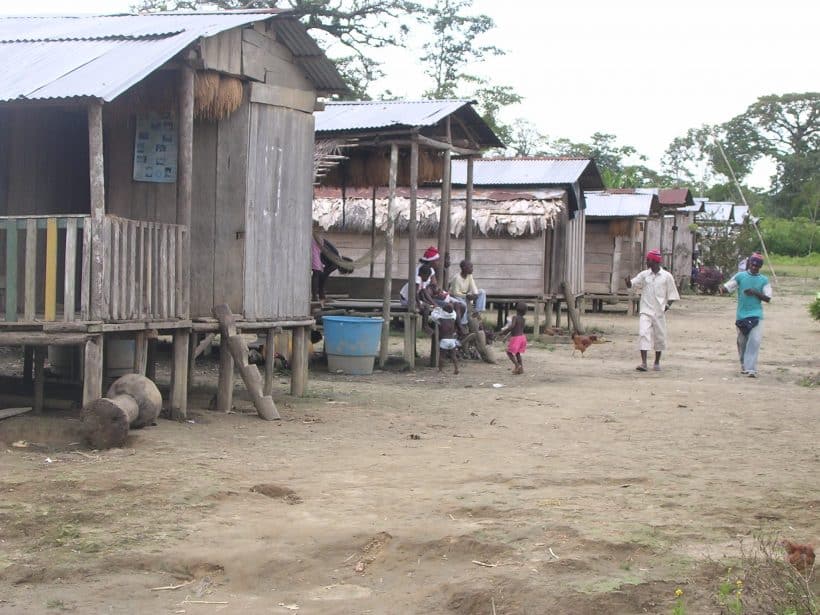In November 2022, Total Peace Law 2272 was passed it define peace as a State Policy which implies that, to what was agreed in the peace agreements, it will have to be given continuity, regardless of the government that is in office.
Total Peace in this law is defined from the perspective of human security, which focuses on human development, protecting the person from all kinds of threats such as: violence, crime, hunger, unemployment, repression, environmental risks… In accordance with the guarantee of human rights that the State must provide.
Within the framework of this law, the National Government has the possibility of carrying out two types of processes:
- Negotiations with guerrilla groups and others that are political in nature. With these groups dialogues of a political nature are carried out in order to reach a Peace Agreement. Within this group of organisations are the left-wing guerrillas, the Ejército de Liberación Nacional (National Liberation Army – ELN) due to its insurgent nature, and the Estado Mayor Central, which are from the dissidents of the Revolutionary Armed Forces of Colombia- People’s Army (FARC-EP) who did not sign the 2016 Peace Accord with the rest of the FARC-EP.
- Approaches and conversations with organised armed groups or organised armed structures of high-impact crime, in order to achieve their submission to justice and dismantlement, these are not political in nature and their main objective is territorial control and profit from economies illicit activities, such as: drug trafficking, extortion, human trafficking, illegal mining, among others. Among these organisations are the so-called BACRIM, such as: the Gaitanista Self-Defense Forces of Colombia (Clan del Golfo), the Úsuga clan, the Rastrojos, the Pachenca, the Oficina de Envigado, La Terraza, Los Robledo, La Sierra, Caicedo, Los Triana, Clan del Oriente, Los Pelusos, La Unión, Los Pachelly, to mention some of those that have the greatest influence on the reality of the country. These armed groups were originally part of the AUC paramilitary Group structures, and they did not demobilise with them in 2006 and have since recruited many new members.
In article 4 of the Total Peace Law (Ley de Paz Total) it is stated that in the National Development Plan and local development plans, policies, programs and projects will be established, aimed at complying with the 2016 Peace Accord and achieving sustained peace, as well as equitable social and economic development, the protection of nature and the integration of the regions, especially the municipalities most affected by violence or those in which the presence of the State has been insufficient.[i]
The State’s commitment also draws on compliance with the implementation of the agreements in the Peace Accord. Article 8 of the Ley de Paz Total announces the creation of peace regions, which are departments that have suffered the most from the armed conflict and will be where Peace Talks would be held in Colombia. Initially, nine are planned in Catatumbo, Arauca, Meta, Guaviare, Chocó, Sur de Bolívar, Cauca, Nariño and Bajo Cauca Antioqueño.
Progress so far:
In 2023 the Government announced five Decrees initiating bi-lateral ceasefires with illegal armed groups, namely, Los Pachenca (Autodefensas Conquistadoras de la Sierra Nevada); el Clan del Golfo (Autodefensas Gaitanistas de Colombia); la Segunda Marquetalia, el Estado Mayor Central de las Farc and el Ejército de Liberación Nacional (ELN). Nevertheless, due to the continuation of violent actions the Government was forced to reactivate military operations against all these groups with the exception of the ELN.
In May 2023, the Colombian Government filed a bill that would provide a legal framework to subject criminal gangs to justice under agreements made in the Paz Total dialogues, this however, was not approved by the Congress. This legal framework will be returned to the legislature session that started on 20 July 2023.
A major difficulty that the Colombian Government has encountered with advancing Paz Total is the resistance of the Attorney General’s Office to lifting of some arrest warrants for leaders of the illegal armed groups that have started dialogues with the Government.
On 21 November 2022, the National Government and the ELN began peace negotiations.
On 3 August 2023, as a result of this process, the delegations announced a six-month temporary bi-lateral ceasefire and are working on the construction of the participation mechanism in civil society dialogues.
The agenda points that the parties have set are the following:
- The participation of society in the construction of peace
- Democracy for peace
- Transformations for peace
- Victims
- End of the armed conflict
- General plan for the execution of the agreements between the National Government and the ELN
At present they are working simultaneously on the first three items on the agenda.
The negotiations have as guarantor countries: Cuba, Norway, Venezuela, Brazil, Chile and Mexico. While Germany, Sweden, Switzerland and Spain will accompany the process.
The national government plans to end negotiations with the ELN in 2025.
7 July 2023 the Colombian Government and the Estado Mayor Central announced the installation of a peace dialogue table, they are in the process of building the agenda for the talks and of agreeing a temporary bi-lateral ceasefire.
[i] en el Plan Nacional de Desarrollo y planes locales de desarrollo se den fijarán políticas, programas y proyectos, dirigidos al cumplimiento de los acuerdos de paz pactados y el logro de la paz, así como el desarrollo social y económico equitativo, la protección de la naturaleza y la integración de las regiones, en especial, los municipios más afectados por la violencia o aquellos en los que la presencia del Estado ha sido insuficiente.

